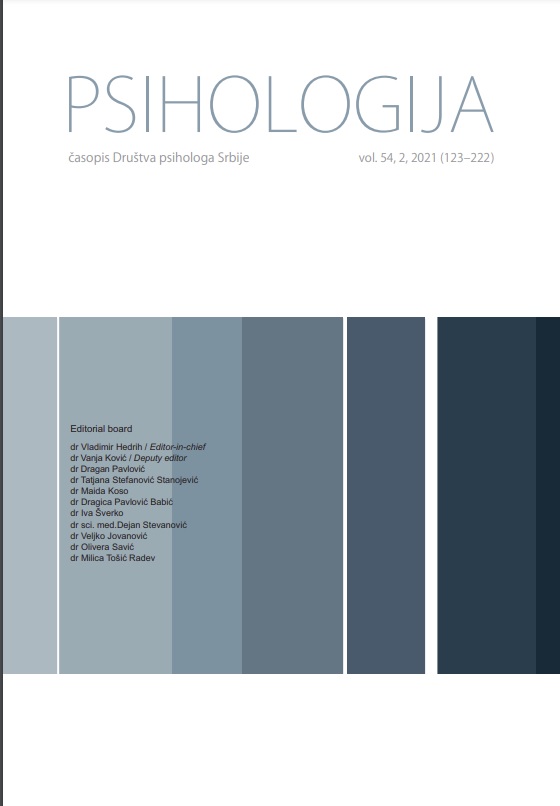Better once it's over, worse now: Prospective moral behaviors after the coronavirus epidemic and cyberchondria
Better once it's over, worse now: Prospective moral behaviors after the coronavirus epidemic and cyberchondria
Author(s): Alexandra Maftei, Andrei-Corneliu HolmanSubject(s): Social psychology and group interaction, Personality Psychology, Clinical psychology
Published by: Društvo psihologa Srbije
Keywords: moral licensing theory;moral cleansing theory;pandemic;lockdown;cyberchondria;
Summary/Abstract: The COVID-19 crisis might generate effects in what regards people's propensity to engage in moral and immoral actions, both during and after the pandemic. We used an experimental manipulation to explore the impact of the current lockdown on anticipated behaviors and its association with cyberchondria and moral identity. A convenience sample of 865 participants completed an online survey in which they were asked to rate the probability of engaging in certain morally positive and negative behaviors over the next week. The experimental group was required to imagine that the pandemic would be over by then, and all restrictions would be lifted, while the control groups did not receive this instruction. Participants' moral identity and cyberchondria were also measured. Results showed that participants in the experimental condition expressed higher intentions to perform positive behaviors and lower intentions to engage in negative actions. Furthermore, cyberchondria was positively associated both to intended negative behaviors in the control group, i.e., during the lockdown and to positive behaviors in the experimental group, i.e., after the lockdown. We discuss these results in relation to prospective moral licensing and cleansing, and to the role of health anxiety in shaping moral decisions.
Journal: Psihologija
- Issue Year: 54/2021
- Issue No: 2
- Page Range: 193-205
- Page Count: 13
- Language: English

